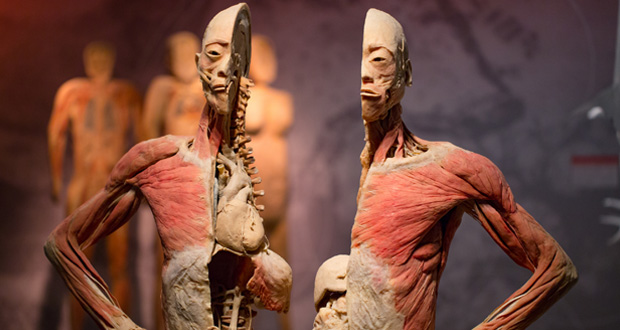A controversial exhibition featuring plastinated human cadavers, organs, embryos and foetuses is “illustrative of an apparent gap in the current legislation", a parliamentary inquiry says.
Details of the exhibition were included as a case study in the inquiry's final report Compassion, Not Commerce: An inquiry into human organ trafficking and organ transplant tourism.
MP David Shoebridge told the sub-committee investigating human organ trafficking: “The proprietors… have been asked about the circumstances in which these bodies came into their possession, and they have been unable and unwilling to prove that any of the persons on display ever gave their consent.”
The report also held that Thomas Zaller, president of exhibition organiser Imagine Exhibitions, stated the human bodies and tissue were sourced from China and were unclaimed by relatives of the deceased.
Mr Zaller has indicated that the cadavers were sourced from Dr Hong-Jin Sui of Dalian Medical University in China between 2000 and 2004. In a statement to News Corp, Dr Sui said the cadavers were “originally received from the city morgue and then transferred to medical universities in China” and that the cadavers “have been legally donated… certified to have died of natural causes.”
According to an investigative report by Der Spiegel, a number of human cadavers sourced from Dr Sui between 2000 and 2004 were later observed to have bullet holes in their skulls. According to the same report, Dr Sui, in email correspondence dated 29 December 2001, described two specific cadavers he had obtained as “very fresh,” having been shot and had their livers removed, allegedly for transplantation purposes, that same day.”
The report recommended that to protect the human rights of deceased persons and their families, only organs or human tissue that have the proper documentation recording donor consent should be approved for importation into Australia.
The report made twelve recommendations for combatting human organ trafficking and organ transplant tourism.
Among them were that the Australian government strengthen the nation's involvement in international efforts to combat human organ trafficking and “thoroughly investigate reforms that would enhance Australia’s domestic organ donation program”.
While the majority of Australians are willing to donate their organs, only one in three are registered as donors.
The chair of the Human Rights Sub-Committee on Foreign Affairs, Defence and Trade, Kevin Andrews, said the demand for donor organs continues to outstrip supply – around 1,400 Australians are currently waitlisted for a transplant.
This gap has enabled an illicit commercial market of organ trafficking and transplant tourism to flourish in some overseas destinations, Andrews said. “This practice gives hope to the desperate but comes with serious medical risk both for the donor and the organ reciprocates and often exploits the poorest and most vulnerable in communities.”
The report also recommended the government improve relevant data collection, support public health education programs and strengthen Australia’s legal prohibitions on organ trafficking.
“Compassion, not commerce is the key,” said Andrews in the report’s foreword.
Do you have an idea for a story?Email [email protected]
 Nursing Review The latest in heathcare news for nurses
Nursing Review The latest in heathcare news for nurses

